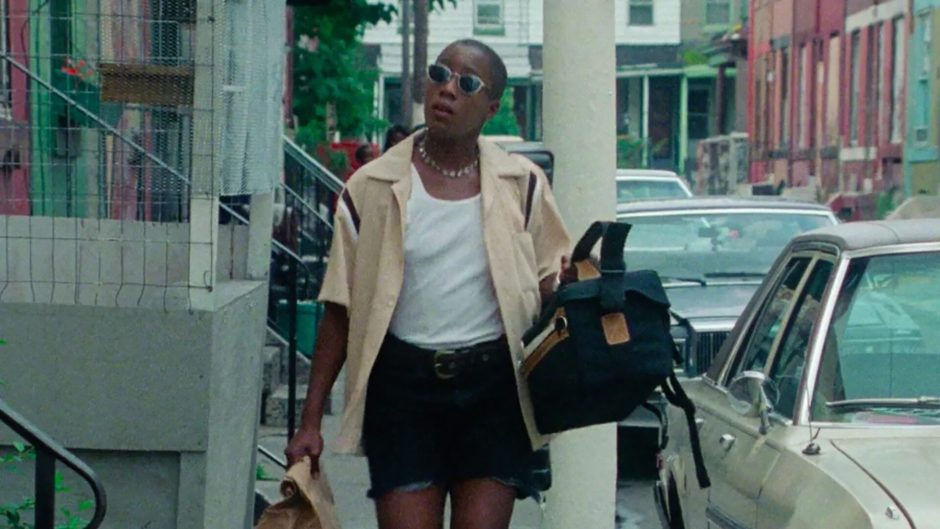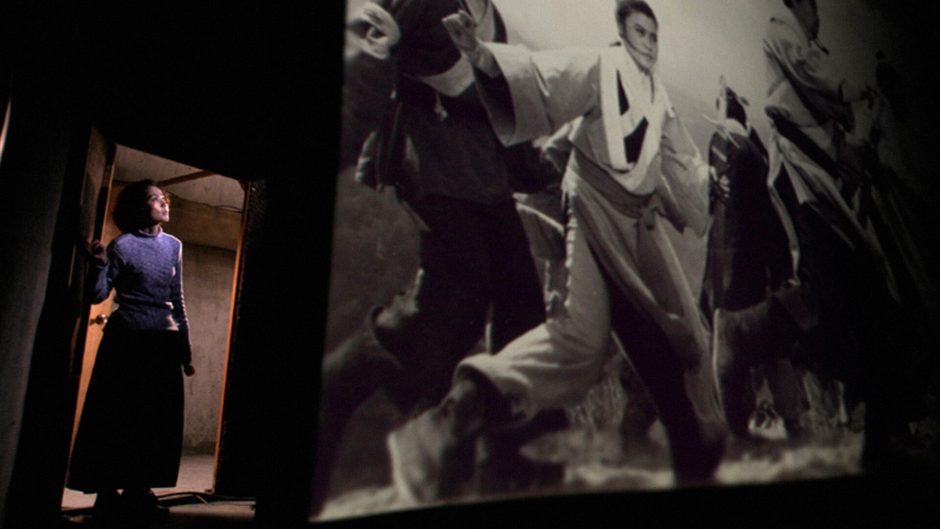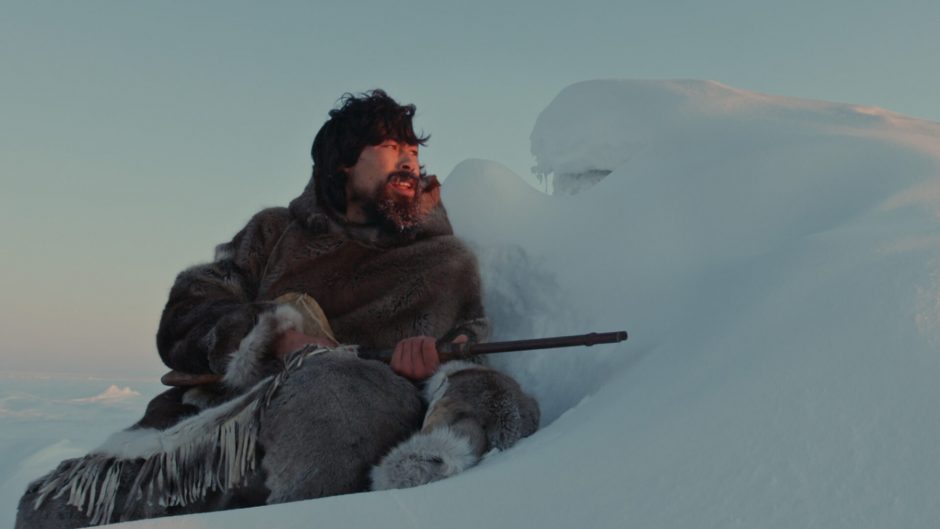(From the Cinematheque Website)
Goodbye, Dragon Inn (Bu san)
“THE best film of the last 125 years.” - Apichatpong Weerasethakul
Taiwan-based Malaysian auteur Tsai Ming-liang reached formidable new heights with 2003’s Goodbye, Dragon Inn, his spellbinding ode to movie palaces of old and the culture disappearing in their absence. The film, considered by the director to be among his finest, depicts the twilight hours of a once-magisterial Taipei movie house, showing King Hu’s 1967 wuxia classic Dragon Inn before shuttering for good. Few are in attendance; most are appallingly behaved. A Japanese tourist cruises for casual sex in the building’s labyrinthine halls; the manager (Chen Shiang-chyi), hindered by a pronounced limp, searches in vain for the projectionist (Lee Kang-sheng) to offer him a steam bun. Tsai’s minimalist masterpiece—slight on story, immaculate in form—unfolds almost entirely without dialogue, save for the swordplay epic within it. In our present COVID moment, as cinemas reopen but streaming holds sway, Goodbye’s soulful lament for a vanishing era of mass moviegoing carries particular poignancy.
Dragon Inn, King Hu’s legendary martial-arts picture, figures prominently in Goodbye, Dragon Inn. Experience both films, back to back, June 3, 4 & 6.
“Eerily exquisite … A nearly wordless, perfectly made moviegoing ballad … Tsai Ming-liang, in addition to being a sterling director, is a superior magician.” - Wesley Morris, Boston Globe
“A movie of elegant understatement and considerable formal intelligence.” - J. Hoberman, Village Voice
The June 2 screening of Goodbye, Dragon Inn is presented as part of “Cinema Thinks the World,” a partnership project between UBC and The Cinematheque. After the film, there will be a short reception followed by a one-hour panel talk with audience discussion.
Goodbye, Dragon Inn panellists are Chelsea Birks, Igor Drjlaca, Christine Evans, Helena Wu, and Mila Zuo.
When:
June 2 (Thursday) 7:00PM
June 3 (Friday) 6:30PM
June 4 (Saturday) 8:45PM
June 6 (Monday) 6:30PM
(From the Cinematheque Website)
Maliglutit (ᒪᓕᒡᓗᑎᑦ) (Searchers)
“Kunuk has created another timeless fable of the Far North.” - Chris Knight, National Post
Video introduction by Zacharias Kunuk, plus post-screening panel talk.
The Western goes Northern in Zacharias Kunuk’s masterful third feature, co-directed with Atanarjuat actor Natar Ungalaaq and made through Kingulliit Productions, the successor to Igloolik Isuma Productions. Drawing inspiration from John Ford’s seminal 1954 Western The Searchers (from which Maliglutit takes its English title, sans article), this captivating, crystalline rescue-revenge story, set across the Arctic tundra of 1913 Nunavut, has an Inuk caribou hunter (Benjamin Kunuk) in pursuit of marauders who ravaged his home and abducted his wife. Co-writers Kunuk and Norman Cohn, Isuma principals both, cleverly absorb and undress the archetypes of the Western, telling a generic tale of violent retribution that forgoes the cowboy-“Indian” binary. Cinematographer Jonathan Frantz (also co-producer) captures the immensity of the barren frozen landscape on a scale befitting Ford’s Monument Valley vistas. The cast, many non-actors, is entirely Inuit; Inuk throat singer Tanya Tagaq contributes to the soundtrack. In Inuktitut with English subtitles.
“With a tale as timeless as the landscape in which it is set, Canada’s foremost Inuk filmmaker has provided us with another classic.” - TIFF
“Immediate and compelling … Ingenious … Its images [are] packed with almost mythic intensity.” - Norman Wilner, Now Toronto
This complimentary National Indigenous Peoples Day screening of Maliglutit is presented as part of “Cinema Thinks the World,” a partnership project between UBC and The Cinematheque. After the film, there will be a short reception followed by a one-hour panel talk with audience discussion.
Maliglutit panellists are William Brown, Jonathan Frantz, Ilinca Iurascu, and Christopher Rea.
When: June 21, 2022 7PM
Admission: Free Admission
The Watermelon Woman
(From the Cinematheque Website)
“A vital example of New Queer Cinema … More than a time capsule, [it’s] funny and smart, full of biting humor and astute observations about identity and history … An audacious, joyous debut feature.” - Serena Donadoni, Village Voice
 With her first feature The Watermelon Woman, writer-director-punk archivist-actor Cheryl Dunye creates an entirely new form of blended fictional narrative, mockumentary, and archeological dig. As “Cheryl,” she plays a twentysomething video store employee with big dreams to open her own production company with her friend and co-worker Tamara (Valarie Walker). After becoming obsessed with the Black actor who keeps popping up in 1930s American films, only credited as “Watermelon Woman,” Cheryl sets out to create a documentary that will lead her to the identity of Fae Richards/Faith Richardson, with whom she feels an unexplained kinship. Along the way, she wades through a courtship with hot, politically tone-deaf Diana (lesbian film legend Guinevere Turner), which mysteriously echoes the same uncomfortable relationship Richards/Richardson had with White “liberal” Martha Page (film scholar and Dunye’s girlfriend at the time, Alexandra Juhasz). – Shayna Warner
With her first feature The Watermelon Woman, writer-director-punk archivist-actor Cheryl Dunye creates an entirely new form of blended fictional narrative, mockumentary, and archeological dig. As “Cheryl,” she plays a twentysomething video store employee with big dreams to open her own production company with her friend and co-worker Tamara (Valarie Walker). After becoming obsessed with the Black actor who keeps popping up in 1930s American films, only credited as “Watermelon Woman,” Cheryl sets out to create a documentary that will lead her to the identity of Fae Richards/Faith Richardson, with whom she feels an unexplained kinship. Along the way, she wades through a courtship with hot, politically tone-deaf Diana (lesbian film legend Guinevere Turner), which mysteriously echoes the same uncomfortable relationship Richards/Richardson had with White “liberal” Martha Page (film scholar and Dunye’s girlfriend at the time, Alexandra Juhasz). – Shayna Warner
Preserved by the UCLA Film & Television Archive with funding provided by 13th Gen, Outfest, The Andrew J. Kuehn Jr. Foundation, TIFF, First Run Features & Yves Averous.
preceded by
A Comedy in Six Unnatural Acts
USA 1975
Jan Oxenberg
26 min. DCP
The Wallflower, Role-Playing, Seduction, Non-Monogamy, The Child Molester, and The Stompin’ Dyke are satirical depictions of insults levied at lesbians. Writer-director Jan Oxenberg’s humour twists each charge into a standalone sketch of feel-good fun unseen in any mainstream filmic depictions of queer characters at the time. – Shayna Warner
New 4K restoration by IndieCollect with funding provided by The Andy Warhol Foundation for the Visual Arts, Hollywood Foreign Press Association, Jane Fonda Fund for Women Directors, and IndieCollect Donors Circle.
This free program is presented as part of“Cinema Thinks the World,” a partnership project between the University of British Columbia and The Cinematheque. After the film, there will be a short reception followed by a one-hour panel talk with audience discussion.
Panellists: William Brown, Nya Lewis, Ervin Malakaj, Mila Zuo.
Irma Vep
Mila Zuo presents a screening and discussion on Olivier Assayas' 1996 film, Irma Vep, in conjuncture with her recent book, Vulgar Beauty: Acting Chinese in the Global Sensorium. As always, the screening is open to the public and takes place at UBC's Robson Square Theatre at 7pm.
(From the public humanities website)
The Public Humanities Hub and UBC Connects at Robson Square present a free screening of Olivier Assayas’ meta-cinematic masterpiece, Irma Vep (France, 1996), starring global Hong Kong superstar Maggie Cheung. The screening will be accompanied by a talk and discussion led by Dr Mila Zuo, whose new book, Vulgar Beauty: Acting Chinese in the Global Sensorium (Duke University Press, 2022), looks at how the charisma of Asian women film stars, including Cheung, shifts when placed in a transnational context. All are welcome also to discuss how the film engages with issues of nationality, gender, race, and cinematic history in its story of a director trying desperately to remake Louis Feuillade’s classic silent film, Les Vampires (1915-1916). The event, which will be hosted by Dr Danielle Wong, is part of the Cinema Thinks The World project, a series of 12 screenings and discussions held between UBC and the Cinematheque.
Coming Out
Professor Kyle Frackman presents a screening and discussion of Heiner Carow's 1989 film, Coming Out, in conjuncture with his recent book on the film. The screening is open to the public and takes place at UBC's Robson Square Theatre (room C300). Doors open at 6pm, and the screening starts at 6:30pm.
More info available and reserve your free ticket at the public humanities event page.
Philipp, a closeted teacher, is dating a female colleague to keep up appearances. One night, however, he stumbles into a gay bar and falls for a man. Transformed by this love, he is no longer afraid to face up to who he is. Coming Out was the first and last film to deal openly with homosexuality in the former East Germany, with its release having coincided exactly with the fall of the Berlin Wall (November 9, 1989).
Crimes of the Future
(From The Cinematheque Website)
“A stunning film … Both hallucinatory and intensely real … A new direction for Cronenberg, even as it is possibly his magnum opus.” - Amy Taubin, Artforum
Cronenberg’s astounding return from a near-decade hiatus is one to chew over, a horror film of noirish recurrences and confounding inventions. The great Canadian director has often been described as a filmmaker of “the moment,” but Crimes of the Future thrillingly lays bare the uncertainty at the heart of any artistic age, whether one as distant to us as outer space or so close we imagine we can grasp it. Saul Tenser (Viggo Mortensen) and Caprice (Léa Seydoux), performance artists who stage avant-garde surgeries, are at the pinnacle of an isolated future artworld. Searching for a breakthrough, they wonder if their work is built to be preserved, surpassed, or debased by poor imitation. Cronenberg doesn’t treat his own art so gingerly, and in the process finds an ultimate marriage between the supposed closed systems of bodies and the open system of audiovisual re-creation that drives his body of work.
“Crimes forcefully [renews] a question that Cronenberg has arguably never abandoned, but which has only become more insistent in this, his late period … What does it mean to imagine—to image—the future?” Lawrence Garcia, Cinema Scope
“Crimes of the Future is marked by an air of quiet fatalism, yet a very different sensibility emerges as well … It’s a startlingly romantic film.” Beatrice Loayza, The Nation
This free screening of Crimes of the Future is presented as part of“Cinema Thinks the World,” a partnership project between UBC and The Cinematheque. After the film, there will be a short reception followed by a one-hour panel talk with audience discussion.
Panellists: Chelsea Birks, Christine Evans, Lawrence Garcia, Ernest Mathijs

